Meet the Speakers
Keynote Session
Session 1
Session 2
Session 3
Keynote Session
10:30 ~ 11:30
Redesigning Transit Networks for More Freedom and Access to Opportunity
Transport Policy in the Era of AI and Disruptive Innovation
Keechoo CHOI Ajou University, President
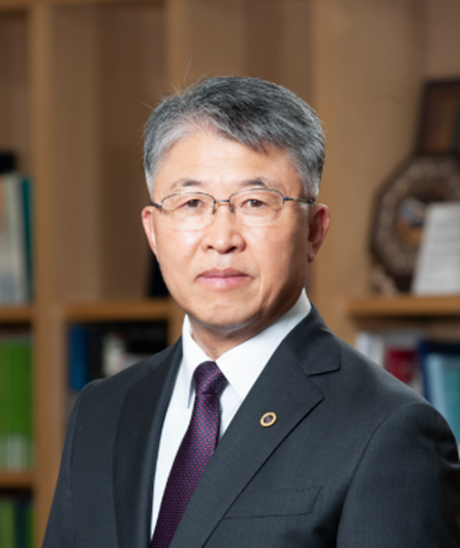 |
10:30 ~ 11:00 |
AI is penetrating in our daily lives including transportation areas. In this talk, the importance of policy and policy making is being highlighted and described especially in the realm of transport by reviewing some examples of history of human mankind. More specifically, we reviewed examples of the Korean transport case-how we develop transport sector by securing the fund for transport development. The notion that we owe a lot what we enjoy and use in transport service today to the establishment of such transportation fund and policy is suggested. With the advent of AI and big data, digital transformation already took place and various attempts are being coupled with AI and disruptions. Some directions and technological bullet points will be envisioned in the midst of policy changes, technology fusion, and socio-economic migrations for better future transportation systems. Final emphasis on the importance of inextricable linkages among data, policy and funding mechanism will also be highlighted with some discussions.
Biography |
Dr. Keechoo Choi is currently the President of Ajou University in South Korea, where he started his academic career since 1994 after spending 2 years for Seoul Institute since he obtained PhD from the Univ of Illinois at U-C. He was a founding Chair of Metropolitan Transport Commission of Korean Government from 2019 March to 2021 May. He also is a professor of transportation and was director for the National Engineering Research Center [ERC] of Sustainable Urban Transportation at Ajou University funded by Korean Government and Korean NSF, national research council from 2010 thru 2019. He also served as president of Korean Society of Transportation [KST] 2017-2019 and chairman of the Korean PIARC (World Road Association). His specialties include travel demand forecasting, travel time estimation for ITS, sustainable transportation, and public transportation. His recent research area also covers autonomous and connected vehicle implementation with infrastructure retrofitting. He is the founding and current Editor-in-Chief of IJST (International Journal of Sustainable Transportation, SSCI in Transportation, IF=about 4.0), editorial board member of Journal of ITS, both by Taylor and Francis, also a board member of Transportmetrica Part B. As director of Transportation Research Center, Chairman of Korean PIARC, and president of KST, he eagerly attended TRB, PIARC, WCTR, COTA and ITS WC meetings. Ever since he became president of Ajou University, he tries to extend the horizon of cooperations between Ajou University and other universities in the world in the form of establishing exchange student programs and co-research framework in all education and research fields. He published more than 200 articles and still at works of journal peer reviews and deliver diverse advising for government and academic affairs both in Korea and overseas.
Redesigning Transit Networks for More Freedom and Access to Opportunity
Michelle POYOUROW Jarrett Walker + Associates, Principal Associate
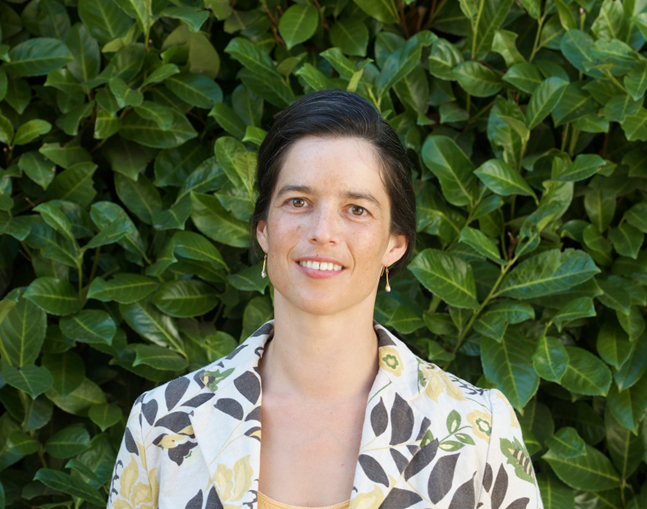 |
11:00 ~ 11:30 | Bus networks rarely get as much attention as rail networks. Bus routes may be considered temporary and therefore unable to support development. In some places buses serve people in lower economic classes than trains. Bus services may be outside of the control of government authorities, left to private enterprise to plan, operate, and make succeed or fail.
Yet bus networks provide enormous mobility. In many major cities with rail and subway systems, the bus network moves more passengers per day than do the trains. They can be deployed faster and more widely than rail. If buses are built with rail-like signalization, protection from car congestion and station infrastructure, then buses can be fast, reliable and comfortable like trains.
Many bus networks have not been "designed" per se but are inherited mixtures of routes, often resulting in complexity and duplication if not outright competition. The worldwide growth in private or shared car use has undermined the viability of transit as a profit-driven business in many cities and suburbs. In response, authorities around the world are redesigning bus networks, making them useful for a wider variety of trips and giving people freedom to access new opportunities.
Biography |
Michelle Poyourow is an international expert in transit network design. She is a Principal Associate with Jarrett Walker + Associates (JWA) and a co-owner of the firm. Michelle manages the "blank slate" restructuring of bus networks, to improve their clarity, simplicity, usefulness and ridership. She has led such redesigns in California, Alaska, Texas, Georgia and Ireland, while providing related advice and analysis in Canada, Israel and the UK. Michelle's current engagements are in Virginia, USA; Wales, UK; and Vancouver, Canada. JWA specializes in helping the public, stakeholders and elected officials understand the choices that arise in network planning. Rather than a purely technical approach, JWA integrates transit plans with political realities, helping government authorities understand and resolve the moral and social aspects of major transit decisions. JWA has developed a suite of exercises, games and other tools that allow non-expert stakeholders to engage in transit planning decisions. The firm is also known for creating graphics and illustrations that show ordinary people how transit networks work. Michelle first entered the transportation field as a planner of bicycle infrastructure. She has also worked in economics and the natural sciences. She is from Los Angeles and lives in Portugal.
Session 1
13:00 ~ 14:30
The Revolution in Public Transport Speed
Impact Analysis of GTX-A Opening in the Seoul Metropolitan Area: Focusing on Change in Activity-Travel Behavior and Spatial Utilization
Backjin LEE Korea Research Institute for Human Settlements, Senior Research Fellow
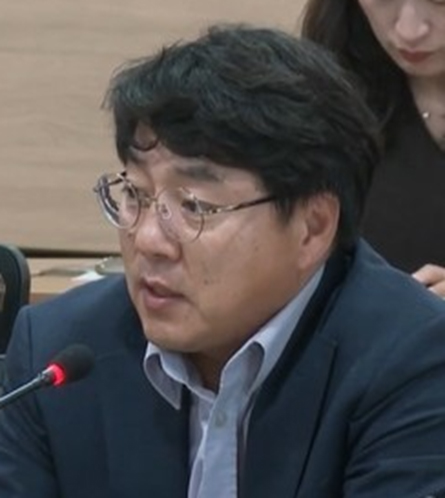 |
13:00 ~ 13:20 | This study examines the multifaceted impacts of the opening of the GTX-A line (Suseo–Dongtan), the first Great Train eXpress route in the Seoul metropolitan area. Using empirical data, it investigates behavioral, spatial, and economic changes associated with the project. First, the reduction in travel time has altered daily activity-travel patterns, enabling users to increase discretionary activities such as socializing, leisure, and shopping, which in turn stimulates local consumption and regional economic revitalization. Analysis revealed that social activity duration rose by 26.4 minutes and frequency increased by 0.243 times per day, corresponding to estimated annual consumption benefits exceeding KRW 22 billion. Second, changes in travel patterns were observed, including expanded activity ranges, destination shifts, and decreased car and intercity bus usage around GTX stations. Third, significant increases in property values were detected near station areas, particularly commercial land in Guseong and Dongtan. Despite these positive outcomes, challenges remain, including insufficient station accessibility, uneven regional benefits, and coordination gaps between central and local governments. The study highlights the need for integrated planning, improved multimodal access, and mechanisms to reinvest development gains into public infrastructure. It concludes by recommending incorporation of broader economic benefits into future feasibility assessments of large-scale transport projects.
Biography |
Backjin Lee is a Senior Research Fellow, National Infrastructure & Geospatial Information Research Division, KRIHS. He received his doctorate degree from Hiroshima University, Japan, in 2003. His areas of expertise include travel behavior modelling, intelligent transportation systems(ITS) and national transportation planning. His recent research projects are “Impact Analysis of GTX-A Opening in SMA”, “Research on Establishing the National ITS plan in road and automobile sector”, “Research on Methods for Developing New Highway Routes Using Traffic Big Data”, etc. In 2023, he authored a book titled “Advancements in Advanced Transportation Technology and Changes in National Land”
Software-Based Strategies for Managing Passenger Congestion, Speed, and Level of Service
Fumitaka KURAUCHI Gifu University, Professor / Vice-Director
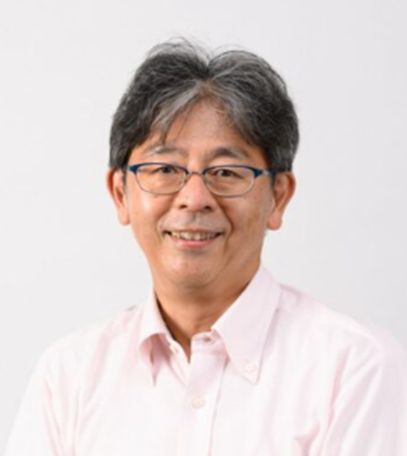 |
13:20 ~ 13:40 | Passenger congestion remains a persistent challenge in urban public transport systems, affecting both service quality and user satisfaction. Traditional approaches often rely on supply-side interventions, such as infrastructure expansion or increased vehicle capacity, which are costly and time-consuming. This talk proposes an alternative perspective that emphasises software-based strategies for demand management. In particular, three types of measures will be discussed: (i) controlling passenger flow by applying the concept of common lines to guide travellers towards more efficient and balanced route choices, (ii) pricing mechanisms, such as imposing additional fares on congested routes to redistribute demand, and (iii) value-adding incentives for longer or less congested routes, including reward schemes and gamification concepts. These approaches aim to influence passenger behaviour in a more flexible and cost-efficient manner, without requiring substantial physical investment. The presentation will highlight the potential of software-driven solutions to balance passenger flows, enhance the level of service, and promote sustainable mobility.
Biography |
Fumitaka Kurauchi is a Professor in the Department of Civil Engineering at Gifu University and serves as Vice-Director of the Center for Infrastructure Asset Management Technology and Research. Having graduated from Kyoto University in 1992 with a Bachelor's Degree in Engineering, he went on to earn a Master's Degree in Engineering in 1994. He then obtained a Doctor of Engineering in 2002 from Kyoto University. From 1994 to 2008, he held positions as a Research Associate and later as an Assistant Professor at Kyoto University. During his time in Kyoto, he conducted research at the Centre for Transport Studies in Imperial College London as a visiting researcher from July 2002 to June 2002. In 2008, he joined Gifu University as an Associate Professor and later in 2012 he was promoted to the position of full Professor. His research interests include travel behaviour in response to dynamic traffic information, resilient transport network design and analysis, and public transport network planning, design and evaluation. He is an Associate Editor for Transportmetrica B and Scientific Reports, and serves on the International Scientific Committees of CASPT (Conference on Advanced Systems for Public Transport) and TransitData (International Workshop and Symposium on Research and Applications on the Use of Passive Data from Public Transport), the latter of which he co-founded. In July 2025, he co-chaired the CASPT and TransitData 2025. He also contributes as an expert advisor to public transport councils and urban planning committees in Gifu Prefecture and its municipalities.
Speed-Induced Urban Development: High-Speed Rail New Towns in China and Policy Implications
Mi DIAO Tongji University / Professor
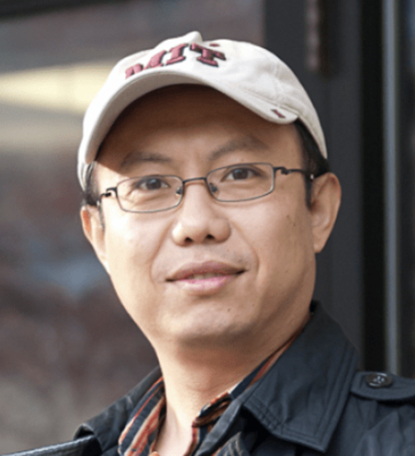 |
13:40 ~ 14:00 | Bus networks rarely get as much attention as rail networks. Bus routes may be considered temporary and therefore unable to support development. In some places buses serve people in lower economic classes than trains. Bus services may be outside of the control of government authorities, left to private enterprise to plan, operate, and make succeed or fail. Yet bus networks provide enormous mobility. In many major cities with rail and subway systems, the bus network moves more passengers per day than do the trains. They can be deployed faster and more widely than rail. If buses are built with rail-like signalization, protection from car congestion and station infrastructure, then buses can be fast, reliable and comfortable like trains. Many bus networks have not been "designed" per se but are inherited mixtures of routes, often resulting in complexity and duplication if not outright competition. The worldwide growth in private or shared car use has undermined the viability of transit as a profit-driven business in many cities and suburbs. In response, authorities around the world are redesigning bus networks, making them useful for a wider variety of trips and giving people freedom to access new opportunities.
Biography |
Professor Mi DIAO received his Ph.D. in Urban Studies and Planning at the Massachusetts Institute of Technology (MIT). He is currently a professor in the college of Architecture and Urban Planning at Tongji University in China. Previously, he served as a Senior Research Fellow and Assistant Professor at the National University of Singapore. He has been recognized as one of the world’s top 2% researchers (Stanford University, 2021–2024) and was awarded the Economic Approach in Urban Sustainability Studies Award by the International Association for China Planning in 2021. Professor Diao has led a wide range of international research projects in China. He currently serves on the editorial boards of the Journal of Transport and Land Use, Transportation Research Part D, and Urban Rail Transit.
Session 2
14:40 ~ 16:10
Artificial Intelligence and Public Transport
Artificial Intelligence in public transport: Societal implications from automation to system optimisation
Dimitris MILAKIS German Aerospace, Senior Researcher
 |
14:40 ~ 15:00 | As artificial intelligence (AI) becomes increasingly embedded in urban mobility systems, its societal implications grow in both scale and complexity. My talk explores two key applications: (1) AI-enabled vehicle automation, from on-demand robo-taxis to high-capacity automated buses, and (2) AI-driven optimisation of public transport and wider transport systems, including dynamic scheduling, passenger flow forecasting, and multimodal journey planning. While these innovations promise safety, efficiency, flexibility, and sustainability, they also raise important challenges such as social exclusion, limited algorithmic transparency, unclear accountability, and growing concentration of power. I will argue for anticipatory governance frameworks that integrate societal values, co-created with communities, into the development and deployment of AI systems in public transport. Biography |
Dr.-Ing. Dimitris Milakis is a Senior Researcher and European Research Coordinator at the Institute of Transport Research, German Aerospace Center (DLR). He is also Co-leader of Cluster 6 “Societal Aspects and People Needs” of the CCAM Association in Europe, involving over 200 innovation stakeholders. His research explores the complex relationships between transport innovations and society, adopting a socio-technical perspective that places society at the heart of innovation. Through in-depth exploration of societal acceptance, implications, and governance of transport innovations, his work has opened new research paths beyond the technological and operational focus prevalent in literature and practice. His publications on transport innovations and society are among the most read and cited in the field. He has undertaken key roles, as principal investigator, research associate, and international expert advisor, in Greek, Dutch, German, Norwegian, and EU-funded research projects. He has held teaching and research positions at several leading universities, including Delft University of Technology, University of California, Berkeley, Technical University of Munich, and National Technical University of Athens.
Autonomous Vehicles and the Future of Public Transportation: Safety, Efficiency, and Policy Challenges
Marcelo H. ANG Jr. National University of Singapore, Professor
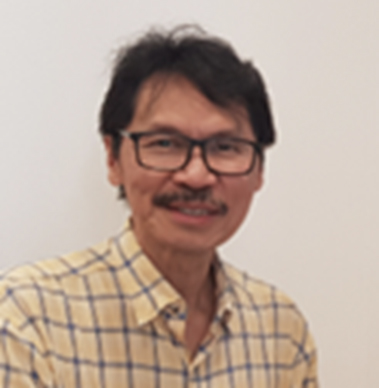 |
15:00-15:20 | As cities worldwide strive to build smarter, more efficient public transportation systems, autonomous vehicles (AVs) are emerging as a transformative solution. This talk explores the critical role AVs can play in reshaping urban mobility—enhancing safety, optimizing logistics, and improving accessibility for all.
We will examine the technical hurdles that must be overcome, from sensor reliability to real-time decision-making, as well as the practical challenges including legal frameworks, ethical considerations, and public trust. The discussion will also highlight the pivotal role of government in regulating, funding, and guiding the integration of AVs into existing infrastructure.
Biography |
Marcelo H. Ang, Jr. is a Professor at the National University of Singapore and principal researcher at its Advanced Robotics Centre. He holds degrees in Mechanical and Electrical Engineering from De La Salle University, the University of Hawaii, and the University of Rochester. His research focuses on robotics, mechatronics, and intelligent systems, with a particular emphasis on autonomous vehicles. Dr. Ang actively contributes to standards development for robotics and autonomous systems and advises industry and government on automation strategies. He teaches both undergraduate and graduate courses and is deeply committed to robotics outreach, serving as founding chairman of the Singapore Robotic Games and Advisory Council member of the World Robot Olympiad. With a career spanning academia, industry, and policy, Dr. Ang brings a multidisciplinary perspective to the future of intelligent systems and their societal impact.
Transforming Public Transport with Artificial Intelligence: Toward Personalized and Sustainable Mobility
Jinhee KIM Yonsei University, Associate Professor
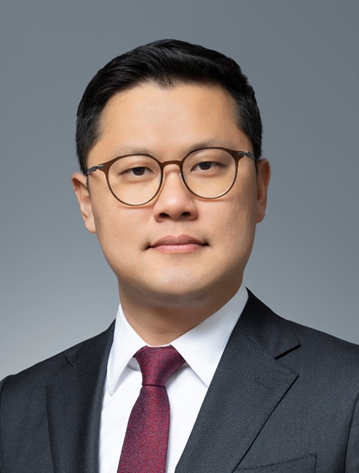 |
15:20-15:40 | Urban mobility faces persistent challenges such as congestion, environmental impacts, accessibility gaps, and unsustainable infrastructure costs. Traditional strategies - including transit expansion, transit-oriented development, and human-scale planning - have contributed but remain insufficient for complex metropolitan realities.This presentation underscores a paradigm shift from “transportation” to “mobility,” with Artificial Intelligence (AI) as the key enabler driving this transition. AI empowers public transportation to evolve from rigid, uniform systems into more personalized services while maintaining high efficiency. On-demand ride services like ride-hailing and demand-responsive transit leverage AI for dynamic routing and predictive fleet deployment, enhancing coverage and responsiveness. Mobility-as-a-Service (MaaS) platforms integrate multiple modes into seamless, customized journeys. Autonomous vehicles further expand these possibilities, enabling flexible, scalable, and continuous shared mobility solutions.
However, realizing this potential requires addressing critical challenges. Data collection raises privacy and governance concerns, while a widening “data divide” risks deepening inequalities between metropolitan and underserved regions. Furthermore, the opaque nature of algorithmic decision-making undermines transparency and public trust. The presentation calls for anticipatory governance that embeds societal values, inclusivity, and transparency into AI-driven mobility. Properly harnessed, AI can transform public transport into a more personalized yet efficient system, fostering sustainable, equitable, and resilient urban futures.
Biography |
Dr. Jinhee Kim is an Associate Professor in the Department of Urban Planning and Engineering at Yonsei University, South Korea. He received his Ph.D. in Urban Transportation Planning from the same department. Before joining Yonsei University, he served as an Assistant Professor in the Department of the Built Environment at Eindhoven University of Technology in the Netherlands. His research focuses on understanding and modeling travel behavior and urban mobility patterns, with particular attention to individual decision-making processes in activity-travel choices. He applies and develops advanced discrete choice models and machine learning frameworks to capture the complexity of travel decisions. A major application area is demand forecasting for urban infrastructure, emerging mobility solutions, and transportation policy evaluation. More recently, his research has expanded to incorporate Artificial Intelligence (AI) in travel behavior modeling, particularly to design and assess personalized public transportation services. He is also actively engaged in developing evaluation criteria for transportation project appraisal, aiming to provide robust tools for sustainable and inclusive mobility planning.
Session 3
16:20-17:50
Transport Fare Policies and Technological Innovation
Commuter ticket system and MaaS in Japan
Toshiyuki YAMAMOTO Nagoya University, Professor
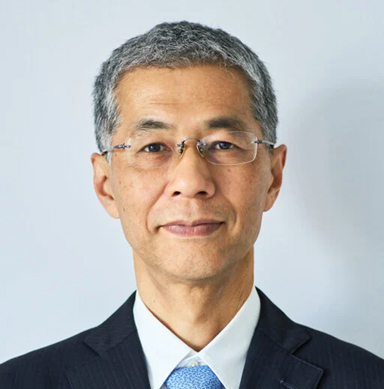 |
16:20-16:40 | Public transit ridership is declining in Japan. According to the decreasing population, the number of commuters using public transit is decreasing, and less commuters buy commuter ticket because of work from home several times in a month after COVID period. Conventional commuting ticket system in Japan is explained at first, and the investigation results on usage patterns of public transit commuters using IC card data are presented. The results of comparison between commuting ticket holders and non-holders show significant difference in frequency and variability of public transit usage. Then, recent advances on market in Japan including post-pay system, fare-cap system and zone-based system are introduced, and the results of stated preference analysis on acceptability are reported. Web-based questionnaire survey was carried out targeting commuters and frequent visitors to Nagoya CBD area, and 2154 respondents answered. The results suggest that about one third of respondents are willing to buy zone-based commuter ticket even with additional costs, and more than 70 % showed intention to increase the frequency to visit CBD area when the ticket is available, which may contribute to revitalize the CBD area. Biography |
Professor Toshiyuki Yamamoto is a professor at Nagoya University, affiliated with the Institute of Materials and Systems for Sustainability, Division of Systems Research (DS). He obtained his master’s and doctoral degrees in engineering from Kyoto University and has conducted research in the field of transportation for nearly 30 years. His primary research areas include travel behavior, big data analysis, and demand analysis, which are core topics in transportation planning. He also explores the intersection of transportation safety, electric and hydrogen vehicles, and urban planning with a focus on land use. More recently, he has been actively engaged in research on smart mobility, including Mobility as a Service (MaaS), and participates in both Japanese and international research projects. Academically, he has published more than 300 papers and has also served as an advisor and committee member for major transportation organizations in Japan.
Transit fare and its multidimensional Implications: A tale of Four cities.
Jiangping ZHOU The University of Hong Kong, Professor
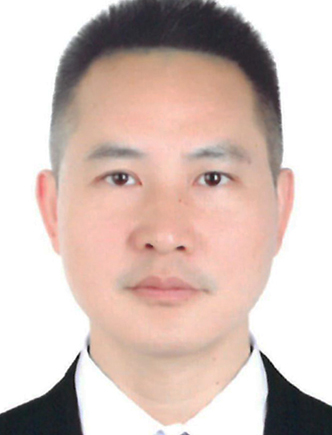 |
16:40-17:00 | The presentation identifies and interprets what transit fare design is and its foundational “theories”. It argues that transit fare and its design can have multidimensional implications. Using examples from four cities: Los Angeles, Brisbane, Wuhan, and Hong Kong, it illustrates how to quantify those implications and address related transit fare design and policy issues. On top of the examples, the presentation also contains personal reflections on all the above by the presenter, who led the empirical cases of the above four cities and teach a public transport systems course since 2017 at the University of Hong Kong. Biography |
Professor Jiangping Zhou is a full professor in the Department of Urban Planning and Design at the University of Hong Kong. His research focuses on transportation and urban studies, particularly the connections between transport/public transit systems and land use, as well as strategies to improve the outcomes of these connections. Recognizing the difficulty of promoting alternative modes of travel in car-dominant environments, he investigates their usage based on traditional and primary data sources such as surveys and interviews. In addition, he leverages big data, including cellphone usage records and smartcard transaction data, to enhance the excess commuting framework, which was previously unrelated to big data.
Tagless Fare Payment in Korea
Joanne YU Tmoney Global Marketing Team, Team Leader
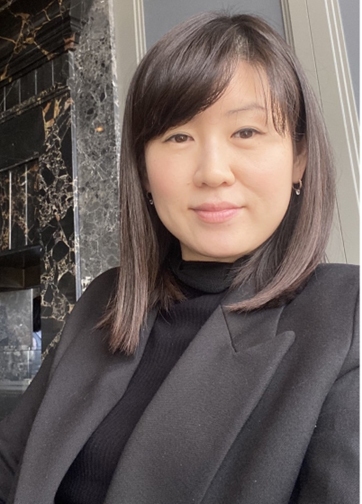 |
17:00-17:20 | Tagless is an advanced fare collection service that enables truly hands-free travel on public transport. Unlike traditional smartcard or NFC payments that require passengers to tap a card or device on a validator, Tagless allows users to simply carry their mobile device and walk through gates or board buses without stopping.
Tagless is a revolutionary ticketing technology, built on over 20 years of Tmoney’s expertise in reliable payment services, and has been recognized with two global awards for innovation.
The Tagless service has been live since 2023, starting with UI LRT and now covering Incheon Metro. Two trial services are scheduled in Daejeon and Daegu, while bus services in the Seoul area will launch in October.
The service uses BLE and other sensors to detect users. When a passenger’s entry or exit is confirmed, the mobile app transmits user and trip information to the server, which then processes fare calculation and payment.
For transport authorities and operators, Tagless offers clear advantages: reduced boarding times, higher passenger throughput, and improved accessibility for elderly or mobility-impaired users. For passengers, it provides a seamless, convenient travel experience with no need to search for cards or pause at validators. Biography |
2022–Present Global Business Lead, Global Business and Marketing Team, Tmoney
2018-2023 Senior Sales Manager, Global Business and Marketing Team, Tmoney
2013-2018 Senior Sales Manager, Suprema Inc.
2010-2013 Sales Manager, Hyundai Digital Technology
2006–2010 Marketing Communication Specialist, Nielsen Company